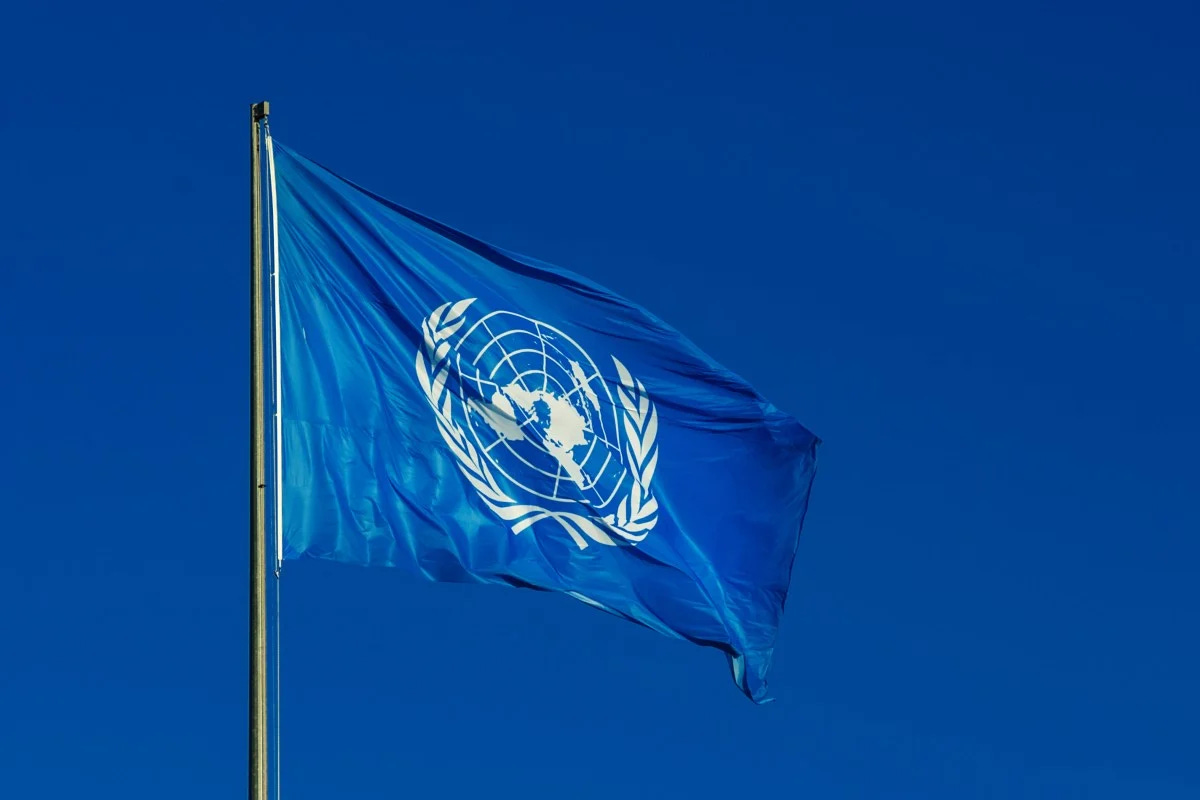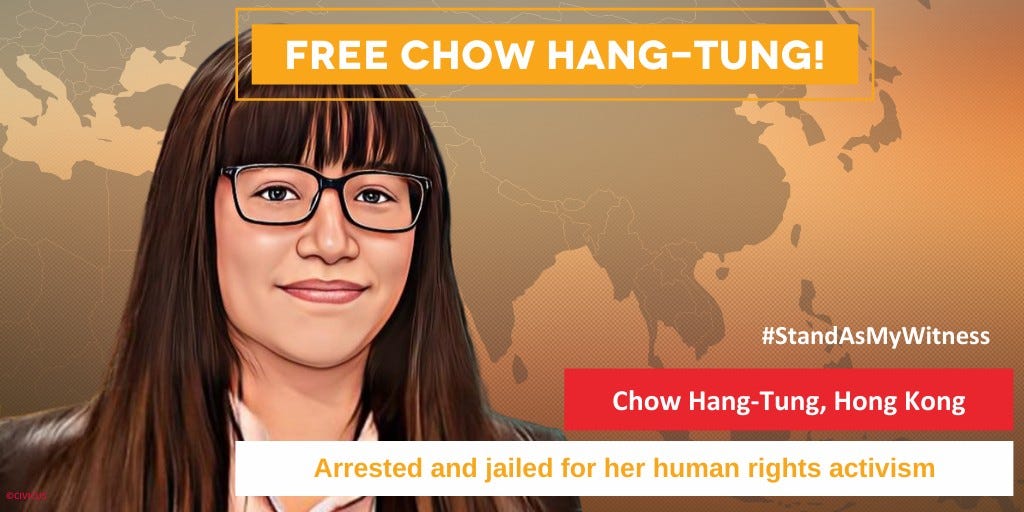Thoughts on today's Damning Report on Hong Kong from the UN Human Rights Committee
The report on Hong Kong's failure to comply with the International Convention on Civil & Political Rights contains some of the strongest criticism ever leveled against a signatory
My articles on Hong Kong legal and political issues are freely available to all, but the effort is made possible by donations from readers. If you find these articles worthwhile, please consider becoming a paid subscriber for US$8/month or $80/year to support ongoing work on this newsletter.
Today, the UN Human Rights Committee (UNHRC) released its Concluding Observations on Hong Kong in relation to its compliance with the International Covenant on Civil & Political Rights (ICCPR). For background, The International Service for Human Rights has highlighted some key points from the report, and my Georgetown colleagues Tom Kellogg and Eric Lai Yan-Ho both have insightful Twitter threads up. The Conclusions offer strong condemnation of the Hong Kong Government’s abuses of law and individual rights over the past several years. Rather than try to summarize the findings, I want to highlight a few key angles that I haven’t seen fully covered elsewhere.
Condemnation of the National Security Law and implicit criticism of judiciary’s hands-off approach
UNHRC called for the repeal of the NSL as incompatible with the ICCPR, which perhaps went further than many expected. It used strong language that puts the Hong Kong Government in an uncomfortable position. The ICCPR is not only written into Hong Kong law via the Bill of Rights, but it is also expressly incorporated into the National Security Law via Article 4, which states that the ICCPR’s rights shall be protected in accordance with the NSL. While many lawyers have long raised concerns about the NSL’s failure to abide by its own terms in this respect, to have the committee formally responsible for reviewing the ICCPR say the same takes the criticism to a new level.
While not stated directly, an additional implication of the ICCPR’s criticism of the NSL is that the Hong Kong Court of Final Appeal (CFA), which is tasked with interpreting the Basic Law, including its incorporation of treaty rights and protections, was wrong in refusing to apply these protections to the NSL. Last year in HKSAR v Lai Chee Ying (Jimmy Lai’s bail appeal), the CFA ruled that it had no jurisdiction to review the constitutionality of the NSL, but seemed to simply breeze past the NSL’s explicit statutory inclusion of these rights and protections in Article 4. The CFA certainly has the right to interpret the NSL itself.
Further, even though the Committee surely knows that the NSL is a Chinese national law, not a Hong Kong law, the report called on Hong Kong to stop enforcing the NSL, not China itself. Hong Kong has no authority to repeal the NSL. While the Committee’s focus on Hong Kong may have been primarily due to the fact that it’s Hong Kong, not China, that is under ICCPR review, the report explicitly calls not just for repeal, but for Hong Kong to “refrain from applying” the NSL. This appears to be a thinly-veiled call for the only Hong Kong body with the legal and constitutional authority to invalidate the NSL—the Court of Final Appeal—to use its power to do so.
Government once again refused to provide police use of force guidelines, but Committee misses the mark in its assessment
At Paragraph 19, the Committee expresses “regret” that the Hong Kong Government refused to provide “guidelines and orders regarding the use of force by police officers.” Those of us who have tried to raise police abuses in court have long been frustrated by this refusal. In my own case, we had leaked versions of the police use of force policies (obtained by Shibani Mahtani of the Washington Post) that showed, unequivocally, that the alleged police officer in my case had violated the Force’s own requirements. (We went to court to demand the official, updated versions of these policies. In the end, not only did the magistrate in my case, Arthur Lam Hei-Wei, refuse to order the Police Force to turn over the use of force guidelines, he actually ruled that we couldn’t even use the leaked versions we had at trial.)
Thus far, no judge or magistrate to my knowledge has ordered the Police Force to disclose its use of force guidelines. But even knowing that, it is rather stunning to see the Hong Kong government refuse to allow a UN body reviewing the city’s treaty compliance to even look at police regulations.
The committee stated that the government’s refusal to turn over the regulations causes them to be “concerned that existing guidelines and orders are allegedly not compliant with the Covenant and relevant international human rights standards.” This misses the mark. The police guidelines we have seen show that that they are 100% compliant with the Covenant. The problem is not the guidelines—it’s that the Police are not following the guidelines. The government is refusing to turn them over because the contrast between what they say and how the police acted through the protests would further expose their misconduct to the Committee and to the world.
The Committee’s reference to specific cases breaks new ground
Several commentators have already noted the apparently unprecedented reference in the report to the unjust imprisonment of barrister Chow Hang Tung on both NSL and non-NSL grounds. At Paragraph 37, the Committee framed Chow’s imprisonment as representative of the increasing government attacks on lawyers in retaliation for their political views, requests for judicial reviews, or representation of opposition figures and protesters.
Chow is a longtime activist for human rights in Hong Kong and China (and a personal hero of mine). She has been charged under the national security law and already convicted in several non-NSL cases, and has been in prison for more than a year. Yet she has not been silenced, and continues to speak out from behind bars while also filing legal challenges on many fronts. As someone who has been behind bars in Hong Kong and felt the pressure and fear that such an experience brings, it’s hard to overstate how courageous she has been and continues to be.
But while Chow is the only prisoner mentioned by name, the Committee also specifically raised concerns in paragraph 15 about the sedition charges against several people for “clapping in court.” This case is, in my view, the most egregiously unlawful case we have seen thus far from the National Security Bureau, and it is right for the Committee to highlight it as representative of the absurd nature of sedition arrests in Hong Kong.
The impossible plight of Hong Kong’s asylum seekers
Finally, while most attention will be focused on the Committee’s findings with respect to political persecution, I was pleased to see the Committee’s calls at Paragraphs 25-26 on reform to the asylum system. Asylum cases take years to complete. Currently, Hong Kong’s asylum seekers, if they are permitted to leave immigration detention at all, are given a stipend far below what is required to live, yet they are also forbidden from working. As a result, many or most asylum seekers work illegally. If they can do so, they find under-the-table work at restaurants or other legitimate businesses. If they cannot, then they turn in desperation to drug dealing, sex work, or other work that can be corrosive to society.
When I was in prison, I met many, many prisoners who were sentenced to long prison terms for simply working at restaurants or warehouses to feed themselves and their families. Others I met were sentenced to even longer terms for turning to drugs to pay the bills. This is not just.
But I have little optimism that the government will reform the asylum system in response to the Committee’s calls. To the contrary, the government doesn’t see a problem in its harsh treatment of asylum applicants. Hong Kong is obligated by treaty to process asylum claims, but the government does not want to attract refugees. Thus, the government deliberately designed the system to make life for asylum applications as difficult as possible. In the end, as the Committee notes, Hong Kong only grants a measly 1.25 percent of asylum applications.
***
The unfortunate reality is that the UNHRC has no authority to enforce the treaty. All it can do is name and shame. But that does not mean that this complex effort, which has taken the time of so many Hong Kong activists over the last several months, has been in vain.
For one thing, it is critically important to create records of the deterioration of Hong Kong—for policy makers, for historians down the road, and for the city’s people. And a record from the UNHRC has more authority than most.
Second, the report will provide ammunition for those of us across the world seeking support amongst policymakers for action on Hong Kong and China, whether it’s sanctions, redirecting investment, or other issues. Many policymakers will give more credit to a UN report than they would a report from activists alone.
The Hong Kong Government has already responded with a statement rebutting the findings. There is little new in the statement, but note the difference between its polite rebuttals of the UNHRC versus its wolf-warrior-esque attacks on other critics like national governments, activists, and media. There is nothing close to the Hong Kong Government’s claim two weeks ago that the US Government “manifests its hegemonism by disseminating slanders and attempting to intimidate prosecutors of the HKSAR Government.” I would expect that this won’t be the last time we hear from the Hong Kong Government on this report, however. The UNHRC process is designed to be ongoing—they will be forced to deal with it more directly over the coming year.
Finally, as NiaoCollective noted on Twitter, I hope Hongkongers will take some solace in the solidarity being offered here by the UN. The Five Demands are not dead.








Great stuff, Samuel.! I do wonder why the breaking of the terms of the Sino-British Joint Declaration is never used as a reason for insisting on the repeal of the NSL. I believe that the agreement between China and Britain re Hong Kong was formally "lodged" with the UN.
Samuel !
What's going on Ukraine now is key to understand the mistake that the CCP has done by supporting putin's war.
If Ukraine is denied sovereignty on Crimea and eastern Donbas republics, why should China be granted sovereignty on Taiwan ?
Further more:
Could you possibly imagine, as a lawyer, that a time limit on sovereignty can be legally defined, and retroactively applied ? Can we settle once for good that the boundaries of former Roman empire are null and void to claim any sovereignty right from Italy over the rest of Europe ?
Thus, a country who did not exert sovereignty over a given territory through tax collecting and policing for a period longer than seven years or so would be denied sovereignty on the said territory ?
If such rule was accepted and defined, Ukraine could be asked to give up Crimea and eastern Donbas republics and recognize their independence as part of a settlement, then China would be asked to give up Taiwan for good and recognize its independence !
Your thoughts ?